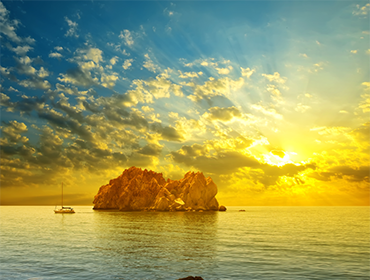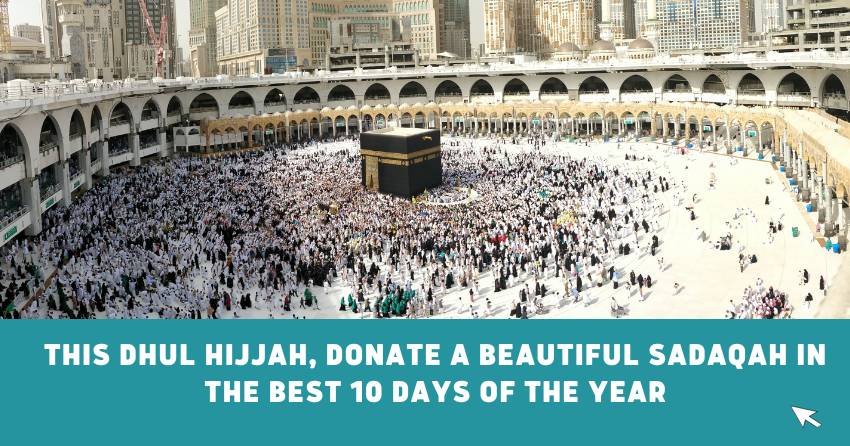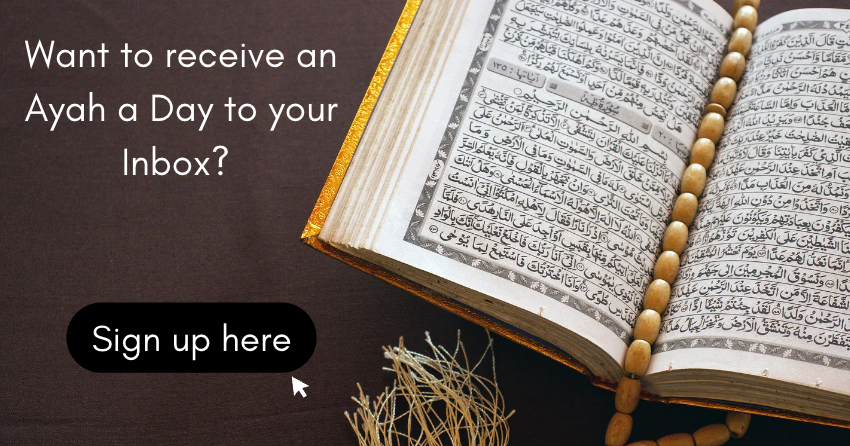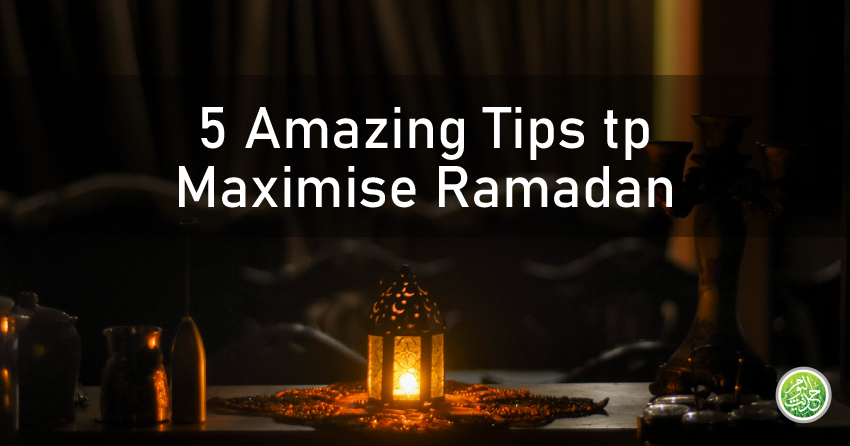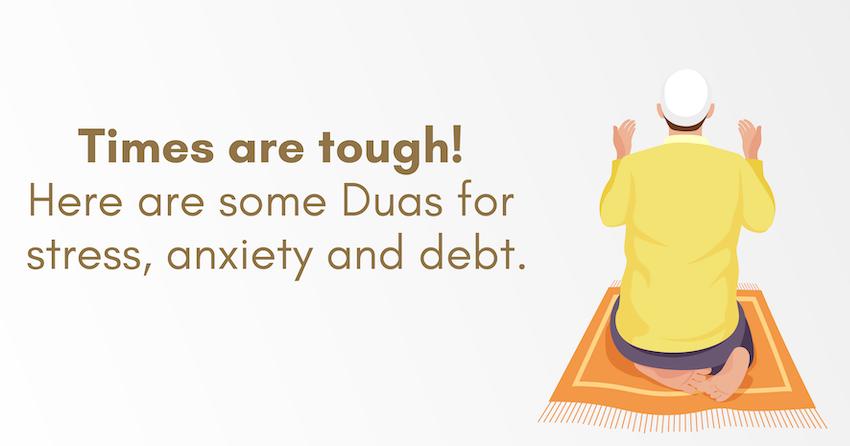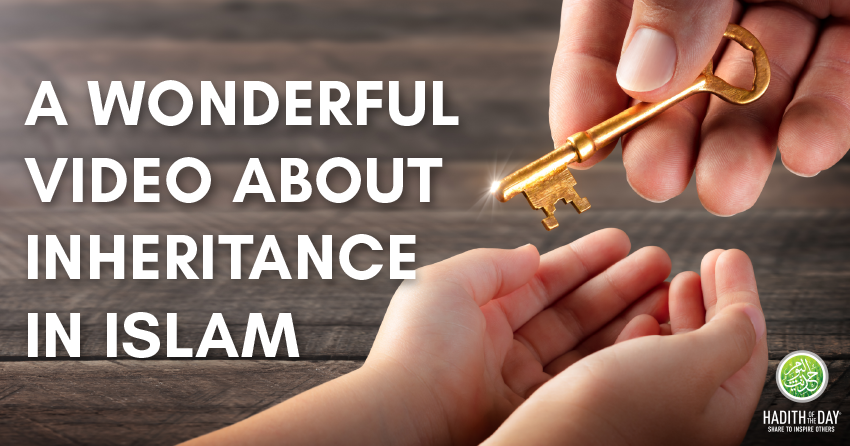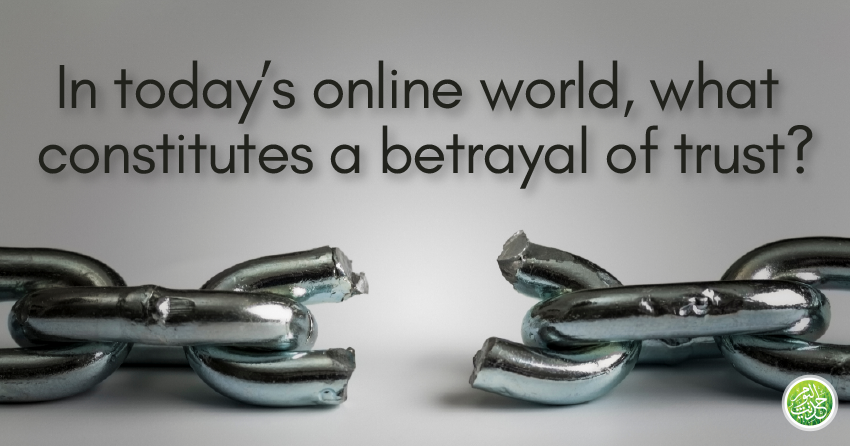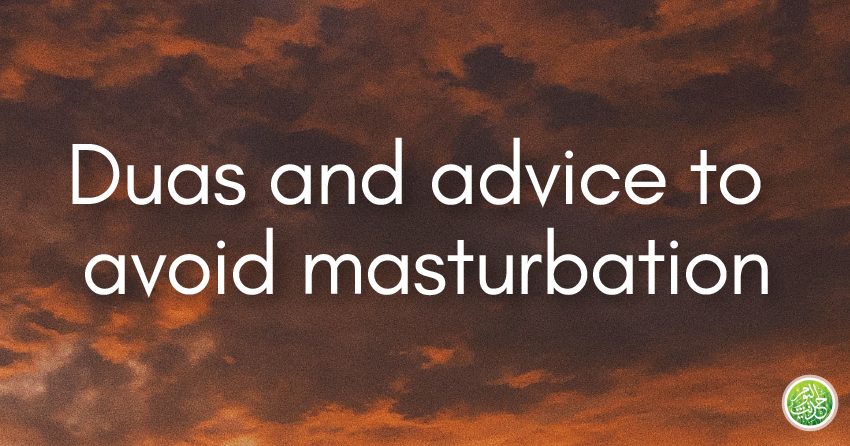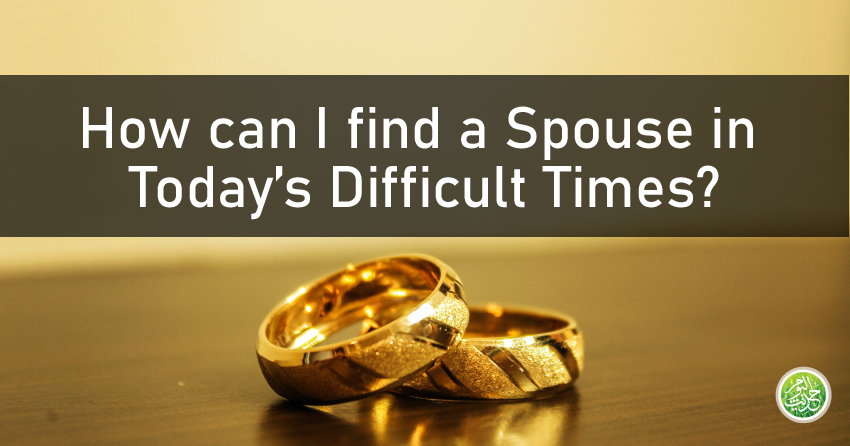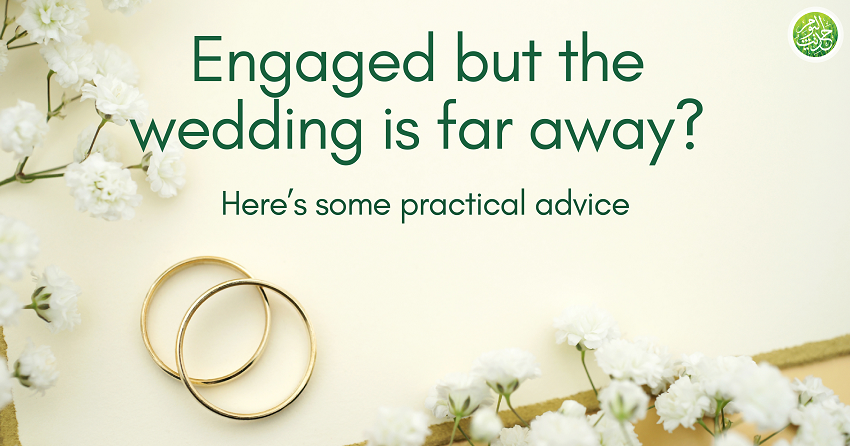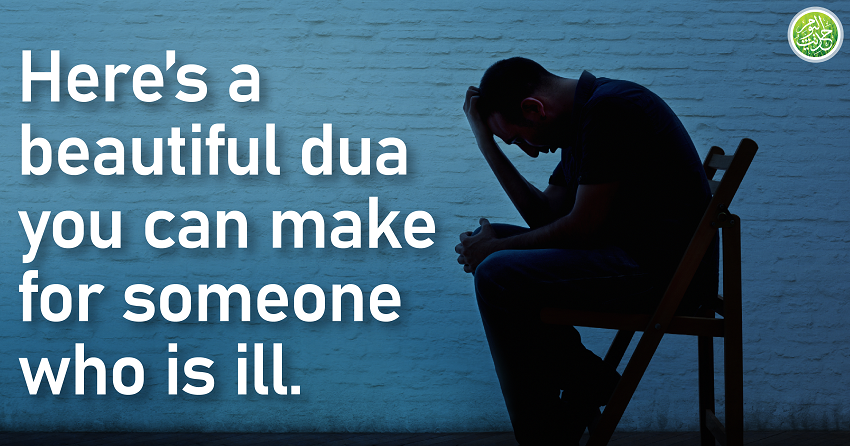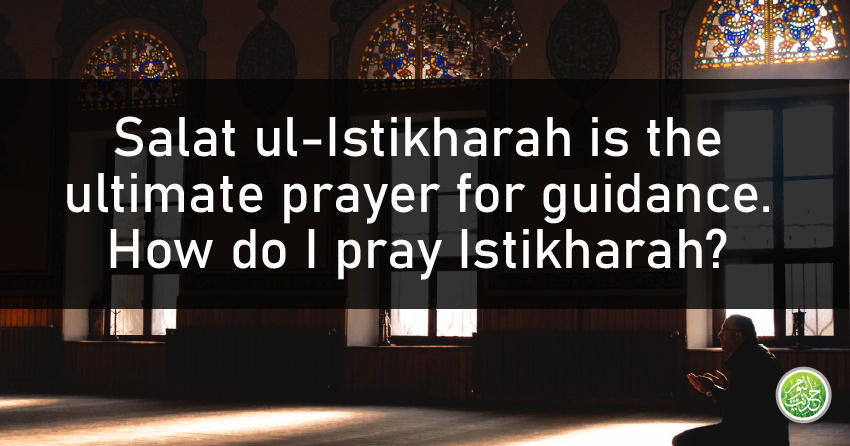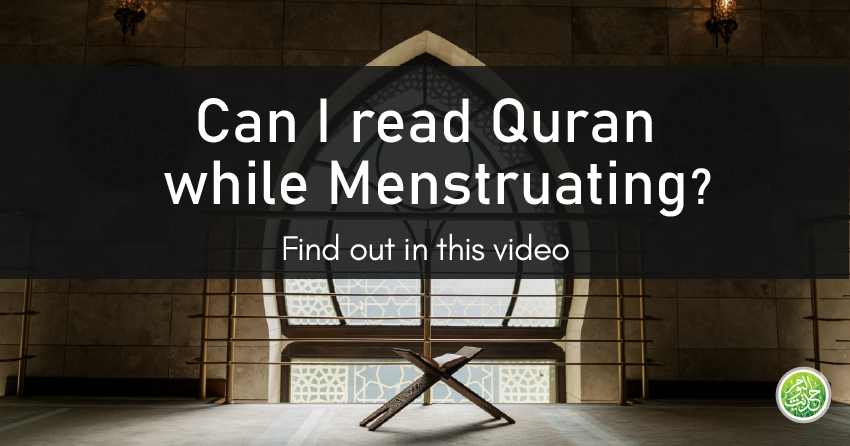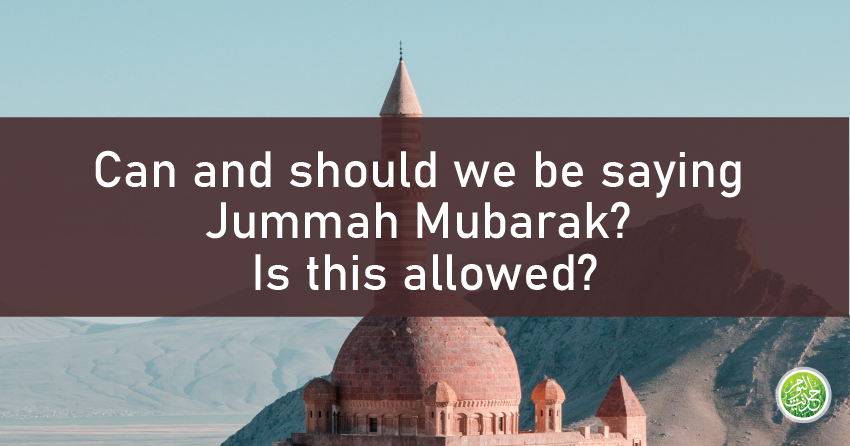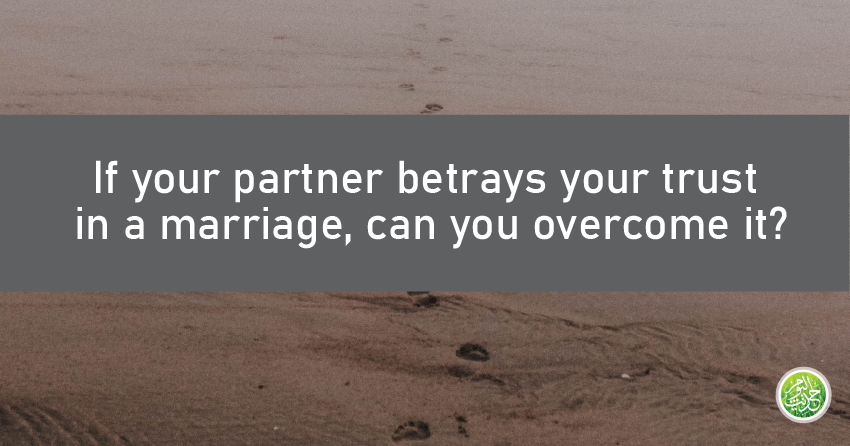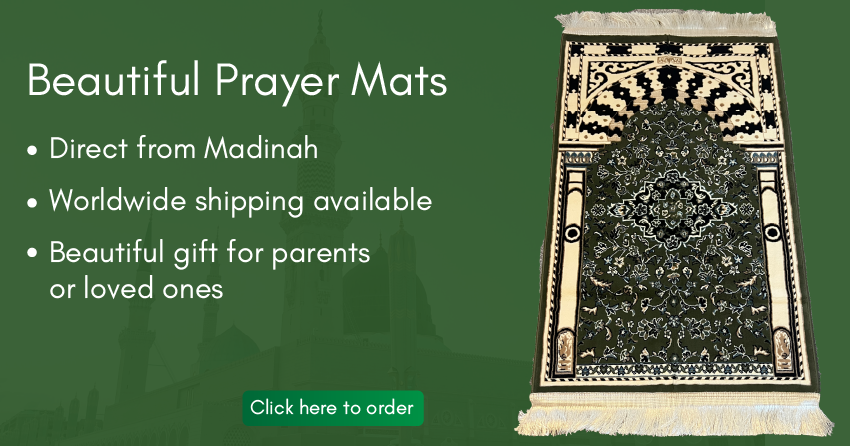Uthman Ibn Affan (RA)

The Third Rightly Guided Caliph – Al Ghani, The Generous; Dhun-Noorayn, Possessor of Two Lights
(Life: approx. 574AD – 656 AD)
(Caliphate: 644AD – 656 AD)
Preface: This is only a summary of the life of Uthman ibn Affan RA and does not cover all the points of his life story. It is not intended to be a biography, but rather a glimpse of the main incidents of his life so that we can get an idea of his character. For ease of reading, we have not inserted “May Allah be pleased with him (RA)” each time his name or the name of each Companion is mentioned, but please take it that the salutations apply to all of them, may Allah be pleased with them all.
Uthman said: “I have found the sweetness of worship in four things. The first is in performing the obligatory acts of worship enjoined by Allah; the second is in avoiding the things forbidden by Allah; the third is enjoining that which is good, seeking the reward of Allah; and the fourth is forbidding that which is evil, fearing the wrath of Allah.”
The first two Rightly Guided Caliphs left large shoes to fill, and historical accounts of them tend to overshadow the achievements of their successors. Yet, the exemplary life of Uthman ibn Affan is one to be emulated, for he is one of the ten Companions who has been promised Paradise. Of him, the Prophet SAW said “Every prophet has a companion in paradise. My companion there is Uthman.”
Uthman bin Affan was born in Taif, near Mecca approximately six years after the Year of the Elephant. Uthman’s birthright was the wealthy Umayyad Clan (Banu Ummaya) of the Quraish tribe in Mecca.
He was said to be a very truthful and bashful person who also possessed a powerful personality. A modest, honest, mild, generous and very kindly man, Uthman was also noted for his piety. As a true and generous believer, he was known of the desire to please Allah and sacrifice all his trade and property for the support of Islam. He has also been known to spend nights in prayer, observed fasts most of the days and performed hajj every year. Uthman knew the Qur’an from memory and has been known to have had an intimate knowledge of the context and circumstances in which each verse had been related to.
Despite his privileged upbringing, Uthman maintained a lifestyle devoid of luxury and the pursuit of worldly possessions. Such was his humility that he has been known to live simply despite his wealth and was known to have often slept on bare sand in the courtyard of the Prophet’s mosque.
It has been said that Uthman’s generosity could not be surpassed by anyone, with the exception of Abu Bakr RA. Other than significant contributions made during the conquest of the Islamic State, Uthman took it upon himself to give alms and look after widows and orphans. It was also customary for him to free a slave every Friday.
Uthman possessed patience that was unparalleled for he had maintained his elegance, poise and tranquillity while faced with challenges in life. This was an invaluable trait that had kept him above board and on an even keel when he led the Islamic state after the passing of the second caliph, Umar ibn Al-Khattab RA.
BEFORE CONVERSION
Uthman was a renowned and successful trader who reaped his profits by giving to the needy. After his father’s passing at an early age, Uthman continued to run the family business at a marked profit thereby affording an increase in his charitable works.
Uthman was not one who sought entertainment and songs and other material pleasures. He was a man of high principles and morals and possessed pure thoughts and actions. He said: “Concern of this world is darkness in the heart, but concern with the hereafter is light in the heart.”
Uthman’s wealth grew and by virtue of being so, he was regarded as one of the men of the Umayyad clan who were held in high esteem by all of Quraish. At that time men were respected by their wealth and for the number of children and brothers they had. Uthman was regarded as being of high status among his people, and he was loved dearly.
EVENTS LEADING UP TO AND INCLUDING THE CONVERSION
By virtue of his travels, primarily to either Yemen or Syria, Uthman had gained exposure to various people and their beliefs, developing the knowledge of their customs and culture. This experience enhanced his understanding of the people around him whilst influencing his own ideas and thoughts he had of the Arab life and idol worship. One night, on his return journey from Syria, Uthman was about to fall asleep when he heard a voice calling: “O sleepers, get up, for Ahmad has emerged in Mecca.”
An extended trip away from Mecca had resulted in a return to unsettling issues in the city. Among these was the emergence of a man called Muhammad bin Abdullah who had made himself known as the Prophet of Islam. While other Meccans had found it difficult to accept new ideas and concepts in their lives, Uthman recalled the incident in Syria. It was indeed a calling to Islam, a sign that required a positive response, for Uthman himself could not explain how anyone could have heard of the Prophet SAW before reaching the city in which he lived. It seemed inconceivable to have ignored the sign and the truth of the need for a saviour to the life of the Arabs during a gloomy period, where among other things, idol worship and violence had become a way of life.
When he learnt of the new religion and the Prophet SAW, Uthman made his way to Abu Bakr whom he knew to be a close friend of Muhammad’s SAW and who had already converted to Islam. Responding to Abu Bakr’s urging to reject the false worship of idols and to accept the belief in Allah as the One God, Uthman went to Muhammad SAW. The Prophet SAW welcomed Uthman and told him of his experience in Mount Hira, when he received the first revelation. Uthman was thrilled to hear this and recounted the incident in Syria telling him of the advent of a Prophet in Mecca. The Prophet SAW stretched his hand, which Uthman grasped in reverence, and declared “There is no God but Allah, and Muhammad is His Prophet.” Uthman was thirty four years old and was one of the earliest Muslims.
Uthman’s conversion to Islam led to a violent reaction and he was not exempted despite his family’s standing in society. He had to suffer the wrath of his own uncle, Al Hakam bin Abi Al-Aas who tied him up and told him that he will not be freed until he returned to the old religion of his forefathers. Uthman said: “By Allah, I will never give it up or leave it.” Uthman was eventually set free when he remained steadfast in his belief and continued to uphold the religion.
CONTRIBUTIONS TO ISLAM DURING THE PROPHET’S SAW LIFETIME
Son-in-law of Muhammad SAW
Because of his conversion to Islam, Uthman had to separate from his wives, who refused to accept Islam. He was grieved and distressed by this, but his love for Islam was of more value to him. The Prophet SAW was so impressed by his sacrifice, that he married his second daughter, Ruqayya, to Uthman. It is said that Uthman and Ruqayya made a unique pair, as Uthman was the most beautiful person amongst the men, whereas Ruqayya was the most beautiful amongst the women.
Marriage to the Prophet’s SAW daughter had elevated the bond shared between them. However, the marriage was short lived. Ruqayya was taken ill at a time when the Muslims went to war at Badr and subsequently passed away when the Holy Prophet SAW and the Muslims were fighting the Quraish at the battlefield of Badr.
Deeply grieved by the loss, Uthman was asked by the Prophet SAW to marry his other daughter, Umm Kulthum. When she too passed away six years later, the Prophet SAW noted Uthman’s grief in his manner of walking and expression on his face and said: “Had we a third daughter, surely, we would have given her in marriage to you.” What an endorsement when the Prophet of Allah SAW considers you worthy of marrying his own daughters!
It has been said that marriage to two daughters of the Prophet SAW had earned Uthman the nickname Dhun-Noorayn (the one with the two lights) as there was no one else had the privilege of having the Prophet SAW as a father-in-law twice over.
The First Migration
The series of persecution started in the fourth year of Prophethood and accelerated and worsened by the day. In the fifth year it began to seem intolerable for the Muslims and Allah saw to this when He made it known in Surat Az-Zumar that it is time for the religion to spread further afield with the migration of a few Muslims.
“Good is for those who do good in this world, and Allah’s earth is spacious. Only those who are patient shall receive their reward in full, without reckoning.” [Qur’an 39:10]
In Rajab of the fifth year of the revelation, a group of twelve men and four women, including Uthman and his wife Ruqayya, left for Abyssinia (Ethiopia). The Prophet SAW had directed this small group to migrate for he wanted to preserve the Muslim community from increasing belligerence. He chose Abyssinia as much had been heard of the Christian ruler, Al Najashi, who did not allow any form of persecution in his land. The Prophet SAW, when bidding Uthman and Ruqayya farewell, said “No doubt, they are the first to emigrate to Allah after the Prophet of Allah, Lut AS.”
Uthman’s migration to Abyssinia, while escaping the harassment by the Quraish and the oppression in Mecca, was also a means for him to lead by example, the peaceful life of worship to Allah. It has been said that migration from life to life, from existence to existence is a journey to Allah with new provisions as one concedes what is old with its sanctities and glories. For Uthman the migration had strengthened his good characteristics and made them more effective and elegant. It was primarily a migration of spirit.
Oppression in Mecca
When Uthman returned to Mecca he discovered that the Muslims had remained oppressed and in fact their living conditions had worsened. The Quraish had decided to cut all social, economic and familial relations with Muslims and Bani Hashim (the Prophet’s SAW clan). Banishing them to a valley and depriving them of a reasonable living, the Muslims did not even have sufficient food and water. Uthman ordered his agents to buy food and secretly supply the Muslims.
The Second Migration and Continued Hardship in Yathrib (Medina)
Again, the Prophet had asked his companions and other Muslims to migrate, this time to Medina, to save themselves from enduring further evil plots of the Quraish. Among the emigrants to Medina were Uthman and Ruqayya.
The Muslims in Medina were poor as they had left their worldly possessions in Mecca. Much depended on the Ansar (dwellers of Medina) to adopt a Muhajireen (emigrants from Mecca) to support them in maintaining their livelihood and for survival. A Jewish trader had taken advantage of the need for the city dwellers’ survival when he sold water (a precious commodity indeed) at a very high price. Uthman took the initiative to relieve them of such high expenses. He offered to buy the well at Rawmah from the Jew but was only allowed to purchase half of it. Uthman then told the Muslims to purchase enough water for two days each time it was his turn to sell water, thereby avoiding purchase of water on the second day when it was the Jew’s turn to use the well. The Jew was then unable to get any buyers and eventually had to sell his share to Uthman. The well then overflowed with its sweet water and provided the people of Medina with water at no price or account.
Uthman’s Generosity Continues
When the number of converts to Islam increased in Medina, the space available for them at the mosque in Medina decreased. The Prophet SAW had hoped that perhaps one of his Companions could help with the purchase of the neighbouring area to facilitate the expansion of the mosque. Uthman was only too willing to oblige and proceeded to the owners of this area with an offer to purchase. The Prophet SAW had said, “Who will buy the land of so and so add it to the mosque in return for something good for him in Paradise?”
Again, when the Prophet SAW returned from their victorious campaign in Mecca, he sought to expand the area of the sacred mosque. He suggested that the owners of the home beside the mosque to donate it but they did not, saying that they had nothing else to their name and no other means of finding another home. For the third time Uthman came forward, purchased a house for the owners with an even larger one than they had given up.
During the rule of Abu Bakr, the Muslims had undergone great hardship and one of them was the need for food. As a merchant Uthman was due to receive a substantial delivery of food and other goods from Damascus but he had chosen to give up the entire caravan to the poor to help them survive the harsh conditions.
Bay’a Al Ridwan
On the 1st of Dhul Qa’idah, in the sixth year of Hijrah, the Prophet with 1,400 Muslims from Medina began their journey to Mecca to perform their pilgrimage. As they journeyed, they heard that the Quraish would not allow them to enter the city. Upon reaching Hudaibiyah, the Prophet sent three messengers to the Meccans to convince them to allow the pilgrimage as that was their sole intention. Each returned unsuccessful. The Prophet then sent Uthman to cheer the believing men and women still in Mecca with the tidings that Allah was about to make their religious victorious.
Uthman entered Mecca under the protection of Abban bin Sayeed Umwi and conveyed the message. The Quraish offered him the opportunity to make tawaf but he refused for as long as the Prophet had been prevented to do so. The Quraish then decided to detain Uthman, perhaps wanting to ensure they had a “card to play” in negotiations with the Muslims but this resulted in rumours that he had suffered death in the hands of the Quraish.
The death of a messenger is often deemed as a declaration of war and the Prophet went about to prepare for a confrontation in Mecca. The Prophet SAW called upon his followers to take an oath that they will remain on the battlefield and to fight unto death, that they would not flee and will stand or fall together to avenge Uthman’s death. With one hand on the other, the Prophet said, “this is the pledge on behalf of Uthman”. The pledge had pleased Allah but thankfully it need not be acted upon for Uthman emerged soon after. Allah revealed a verse in Surat Al-Fath referring to the sanctity of the covenant:
“Verily, those who give Bay’ah (pledge) to you (o Muhammad) they are giving Bay’ah to Allah. The Hand of Allah is over their hands. Then whosoever breaks his pledge, breaks it only to his own harm; and whosoever fulfils what he has covenanted with Allah, He will bestow on him a great reward.” [Qur’an 48:10]
The Expedition to Tabuk
The ninth year after Hijrah saw the Prophet SAW preparing an army for battle with the Romans who were plotting to disrupt the State of Islam. With limited resources and the near impossible task of adequately equipping the army in the middle of a very hot summer, the Prophet sought the assistance of his companions to donate as much as they could. Uthman immediately obliged and was credited to have provided nine hundred and forty camels along with sixty horses for the Tabuk expedition. He had also given ten thousand dinars to the Prophet SAW to ensure that the army was well equipped. The Prophet SAW remarked, “Whatever Uthman does from this day onward, he will suffer no harm.”
THE CALIPHATE RULE OF UTHMAN BIN AFFAN
Uthman ibn Affan was elected the third Caliph after the passing of Umar bin Al-Khattab. The reaction to the election of Uthman was favourable. After the stern rule of Umar, the people welcomed the mild rule of Uthman.
After receiving the pledge of allegiance, he stood up and said: “This world implied vanities, so let not the world mislead you and let no deceiver seduce you. Treat this world as Allah deals with it, and seek for the hereafter, for Allah gives an example of this world when He said: “Set forth to the similitude of the life of this world: it is like the rain which we send down from the skies: the earth’s vegetation absorbs it, but soon it becomes dry stubble, which the winds do scatter: it is (only) Allah who prevails over all things. Wealth and sons are allurements of the life of this world: but the things that endure, good deed, are best in the sight of thy Lord, as rewards, and best as (the foundation for) hopes.””
During Uthman’s rule, the characteristics of Abu Bakr’s and Umar’s caliphate, comprehensive justice for аll, and humane policies where adhered to. He continued to strive in the Cause of Allah and the expansion of Islam continued.
Collection of the Noble Qur’an:
Uthman was deeply attached to the Holy Qur’an. Abu Abd al-Rahman al-Sulami narrated how he learned it from the Prophet SAW and his words indicate how he greatly loved to live with the Book of Allah. Those who taught the Qur’an – such as Uthman ibn Affan, Abd-Allah ibn Mas’ood and others – told us that when they learned ten verses from the Prophet SAW they would not go beyond them until they had learned the knowledge contained in them and how to apply it in deed. They said: So we learned the Qur’an and knowledge and its application together. Hence they would spend a while to memorise a surah.
Reports had surfaced that some Muslims were disputing the Qur’anic text, each claiming theirs to be the authentic version. Furthermore, with the conquests of many nations and the acceptance of Islam by many different people with various languages and varying Arabic dialects, Uthman was keen to maintain the language of the Qur’an as it had been revealed from Allah to the Prophet. In the twenty-fifth year of Hijrah Uthman ordered the collection of all the copies of the Qur’an available and chose to compile the Qur’an in a standard format in the dialect of the Quraish. Uthman entrusted Zaid bin Thabit, himself an authority on Qur’anic text, to work with other trustworthy companions of the Prophet.
Upon completion of the whole Qur’an, he then ordered four true copies to be made. Each one was sent to each major region of the empire and ordered them to destroy any other copies. Thus the standard copy of the Qur’anic text came into being. The Al-Mushaf Al-Uthmani is considered the master copy of the Qur’anic text from which all subsequent authentic copies of the Qur’an have been made.
The Expansion of the Islamic State
Upon his appointment, Uthman sent letters to his governors outlining his proposed policies and reminding them that as rulers, Allah had reminded them that their role is to protect society and not become tax collectors. The interest of all Muslims should be taken to heart and even with the enemies, their conduct should be upright.
As some lands in Iraq and Iran that were conquered by the Muslims had rebelled after the death of Umar, Uthman had directed the governor of Kufah in Iraq, Al Waleed bin Uqbah to strengthen their force. Uprisings in Ray, Iran and Alexandria, Egypt were also quelled. Under the command of Salman Al Farsi ten thousand soldiers were sent to Syria to defeat the Romans who had attacked the Muslim frontiers. This paved the way for further conquests in Asia Minor and further afield to the shores of the Black Sea.
From Egypt and on to the African coast right till the far west, Abdullah bin Abi As-Sarh ensured the conquest of the Muslim army. With the expansion of the Islamic State, it seemed necessary to establish a naval force to facilitate the armies’ passage across the Byzantine Empire and to Europe and Africa. Uthman granted permission to the Governor of Syria, Mu’awiyah bin Abi Sufyan to form a fleet by the 28th year after Hijrah. This formation of the naval force led to the conquest of Cyprus.
While the Islamic State had expanded in every direction, most of the inhabitants of the conquered lands had accepted Islam. Those who had chosen to keep their religion were treated justly and mercifully. Uthman gave his commands that the conquests should go beyond those rebellious areas to borders much farther and more distant, so that there would remain по sides ог farthest regions of the state, which could easily rebel whenever they so like. Не personally chose the leaders of armies which would undertake those tasks. Surprisingly, попе of them lost а single battle, excluding only опе.
THE REBELLION AND THE END
Uthman ruled for twelve years. While the first six years were marked by internal реасе and tranquillity, rebellion rose during the second half of his caliphate. As the Islamic state expanded greatly under his rule, so did the pool of hypocrites who had pretended to accept Islam but sought to disrupt and destroy the state. Rebels had gathered thousands to revolt against Uthman’s rule.
Тhe Jews and the Magians, taking advantage of dissatisfaction among the people, began conspiring against Uthman, and publicly aired their complaints and grievances. They gained sympathy and soon it was difficult to distinguish friend from foe. By that time Uthman was 82.He did not expect a revolt and was ultimately reluctant in having to see bloodshed within his state.
A rebellion in Kufah and Egypt seemed destined to create turmoil within the state. Vicious allegations abounded and were rampantly circulated against Uthman. In keeping this article brief, we will not be examining these in detail but suffice to say all of these accusations were baseless or out of context.
The ripple of discontent and dissension spread, but Uthman refused to acknowledge such reports and his advisors’ request to quell the riots. Because of his honesty and forthright personality, he did not use the funds from the treasury to employ additional guards to him and his home.
A group of armed rebels marched to Medina and was met by Ali ibn Abi Talib at the outskirts, who explained the gravity of the error and the falsehood of the rumours to them. The plea fell on deaf ears, and they went ahead to confront Uthman and put his household under a long siege. Ali bin Abi Talib sent his sons Al-Hasan and Al-Husain along with several others to defend Uthman but they refused to fight the rebels for fear of causing death of Muslims.
Тhe rebels demanded that Uthman abdicate, and indeed some of the Companions advised him to do so. He replied “By Allah, I would not be the first successor of the Messenger of Allah SAW to lead his nation to bloodshed … I would not depart from the homeland of my migration, or the neighbourhood of the Messenger of Allah SAW as long as I am living.”
Muslim ibn Sa’eed, a freed slave of Uthman, reported that one day during the long siege, Uthman freed twenty slaves. Thereafter he said, “I saw the Messenger of Allah SAW in a dream, as well as Abu Bakr and Umar, and they said to me ‘Be patient, for you are going to break your fast with us soon.’ “Then he requested for a copy of the Qur’an and he opened it in front of him.
The rebels then broke into Uthman’s house by burning down the door and entering when none of the Companions were with him. The first assassin’s sword struck Uthman while the Qur’an was still in his hand, and in more than one report, the first drop of his blood fell upon the words “Verily, Allah sufficeth thee; Не is the All-Hearing, the All-Knowing.” [Qur’an 2:137]
Ibn Asakir reported that when Uthman received the first blow, he said “Bismillah, tawakaltu ala Allah” (In the name of Allah, and upon Allah I do rely). When his blood poured forth, he said “Subhanallah Al-Adhim” (Glory be to Allah, the Majestic).
Uthman breathed his last breath оп Friday afternoon, 17 Dhul-Hijjah, 35 А.Н.
The rebels, wanting to loot his wealth, opened his cabinet and found a box in which there was a note that read:
“This is the testament of Uthman before Allah: In the name of Allah, the Most Gracious, the Most Merciful. Uthman bin Affan bears witness that there is no true deity but Allah and that Muhammad is Allah’s Messenger. Paradise is true and Hell is true, and Allah will resurrect everyone on the Day of Judgment, for Allah will never break His promise.”
Тhe power of the rebels was so great that Uthman’s body lay unburied, kept inside his house for three days until the people of Medina could bury it, still in his blood-stained clothes, without a shroud.
Thus ended the life of another great martyr and hero of Islam. He is one of the ten companions of the Prophet foretold by him to be among the dwellers of Paradise.
May Allah be pleased with Uthman for the great services he rendered to Islam and Muslims. It was enough for Uthman to be praised by the Prophet SAW, “Uthman is bashful to the extent that angels get bashful when they see him.”
Acknowledgement : Most of the information for this work has been obtained from
“Shining Stars Among the Prophet’s Companions Volume One” by Abdul Basit Ahmad
“Heroes of Islam” by Mahmoud Esma’il Sieny
“The Sealed Nectar” by Safi-ur-Rahman Al Mubarakpuri
“The Biography of ’Uthman Ibn ‘Affan- Dhun-Noorayn” by Dr. Ali Muhammad Sallabi
“The Successors of the Messenger” by Khalid Muhammad Khalid
Since You’re Here… we have a small favour to ask.
In these extraordinary times, millions rely on HOTD for daily uplifting & inspiring content. Established since 2009 and with your kind support we’ve seen readers elevate their Imaan & strive for better on a daily basis. We’re committed to keeping our content freely available and open for all readers. Every contribution, however big or small, makes a difference and help us spread knowledge to millions daily
HOTD is something special, it’s a place where people can come to be inspired, to renew their faith, to learn and share knowledge, to fall in love with our faith and also our Prophet (peace and blessings be upon him and his family).
All content on HOTD is free. We believe what we do in this life builds for the next one and we work tirelessly with the aim to please Allah and inspire the global Muslim community as
well as providing information and inspiration for anyone interested in Islam. We simply cannot do this without your support and your support helps us continue our services.
If there were ever a time to join us, it is now. You can support HOTD and help sustain our future. Support Hadith of the Day and make a one-off donation or give regularly from as little as £10 a month Jazak’Allah Khayr – whatever you donate will come back to benefit you Insha’Allah as whatever is spent in the way of Allah is an investment in the future and the next life. Thank you.



